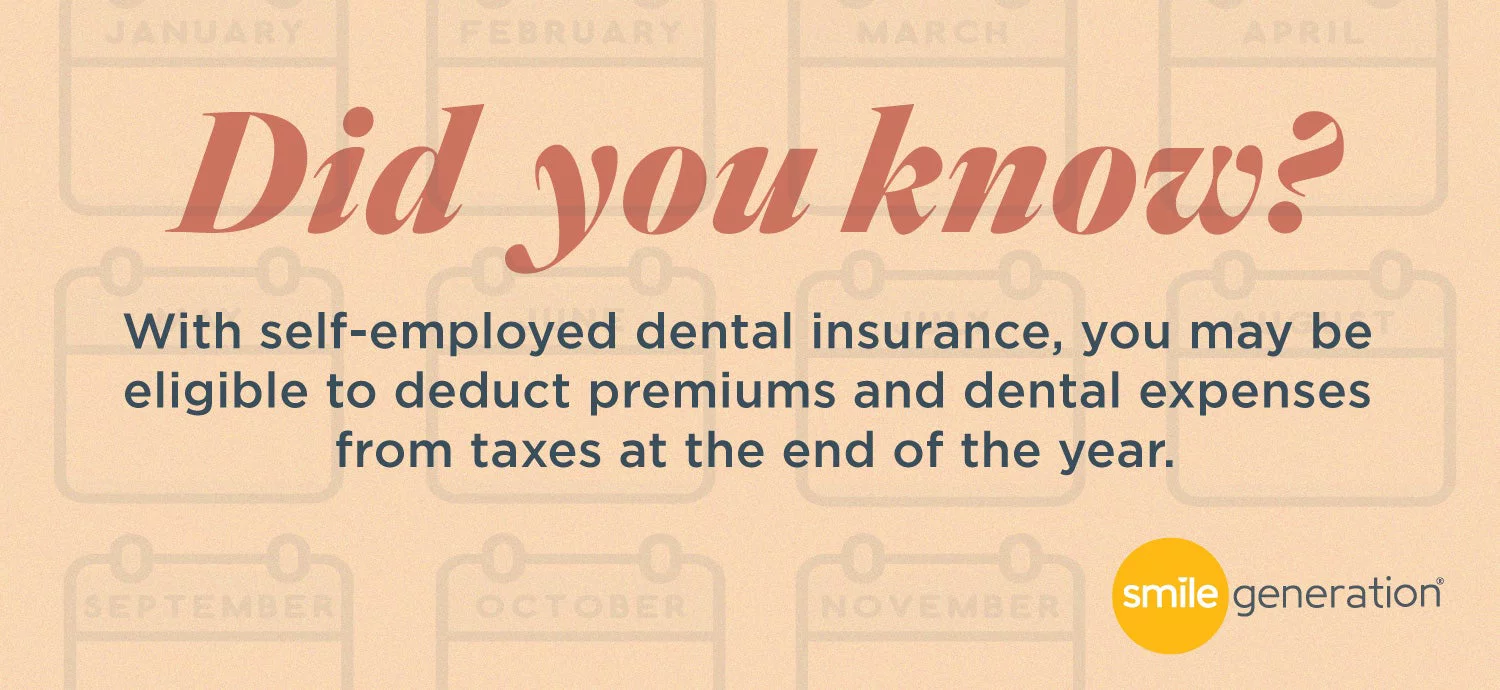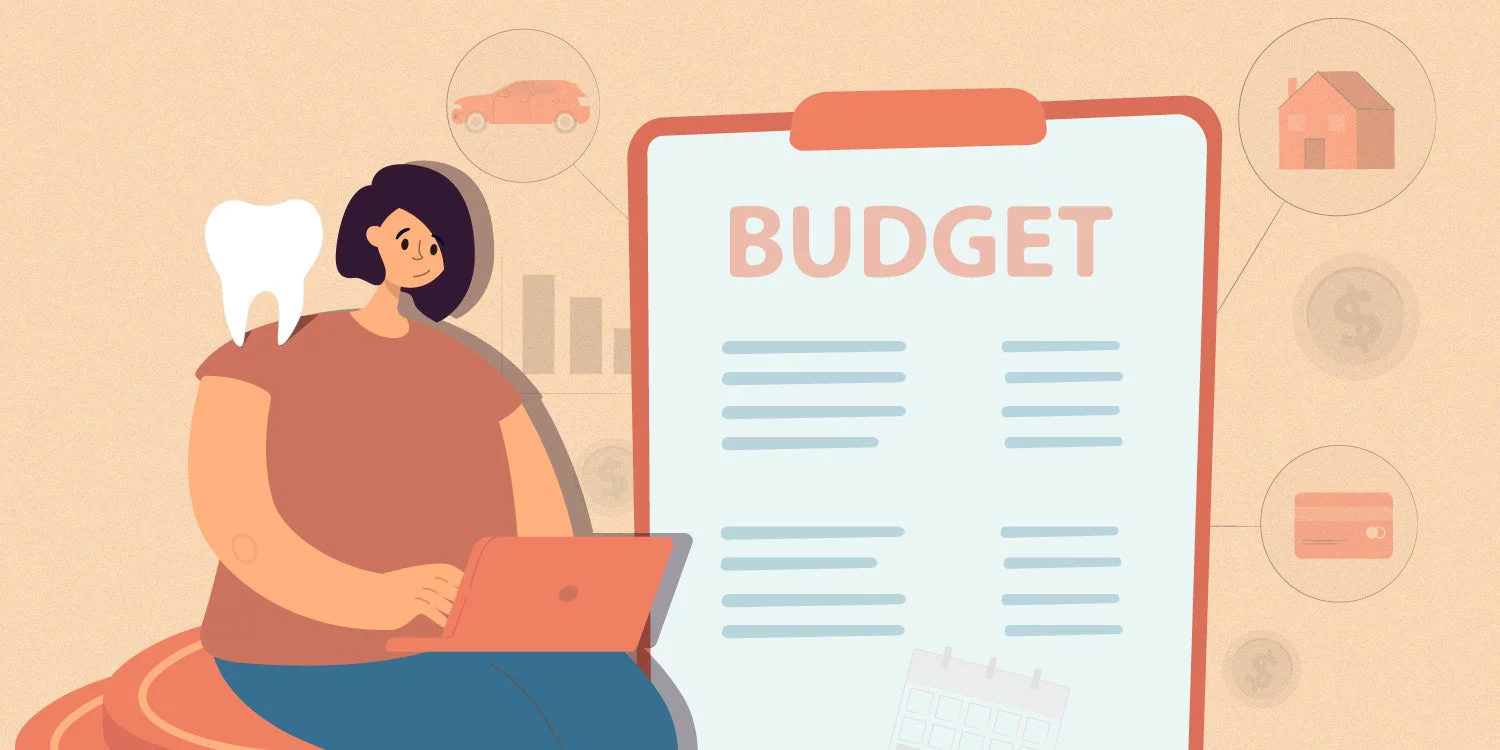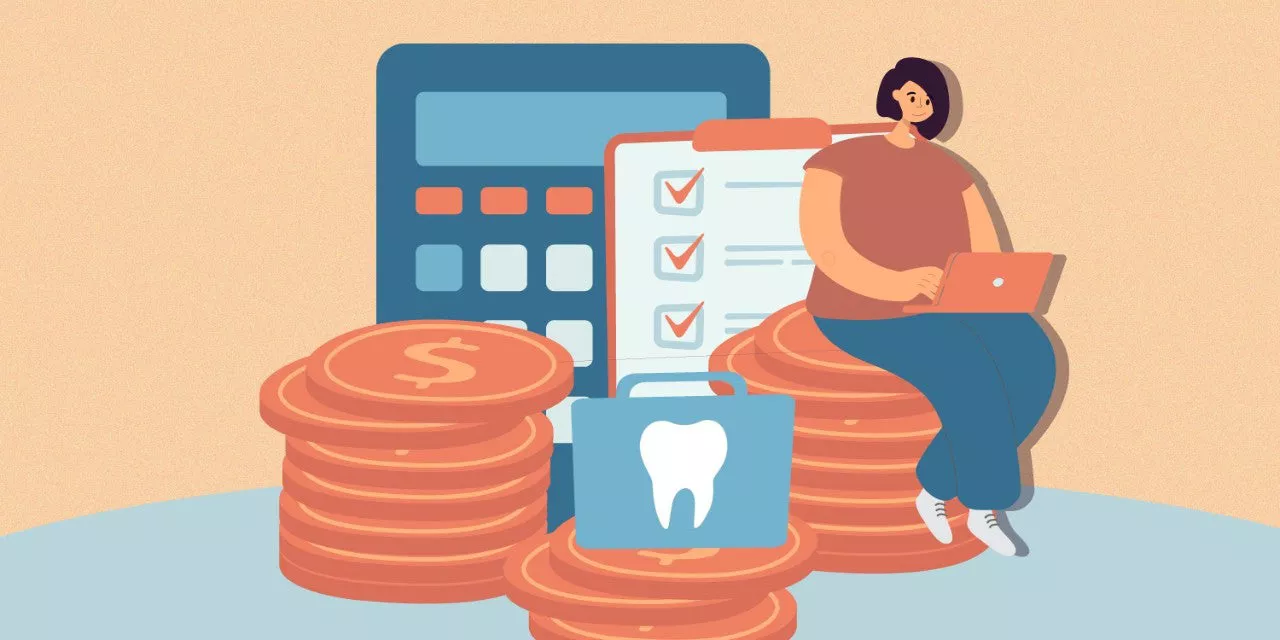The Challenges of Dental Care for the Self-Employed
Dental Insurance for Self-Employed Individuals
- Adding dental coverage to your medical health insurance plan as a rider. With medical coverage being the primary focus of this plan, you may not get the kind of dental coverage you need. However, if you typically have two appointments with your dentist a year and often get a clean bill of health, this addition of dental coverage may be all you need.
- If you need more coverage or have several children who will also need yearly visits and potentially more dental work done, you can opt for a more tailor-made stand-alone dental insurance option.
- Some independent dental insurance policies cover preventative care completely. If you maintain good oral health, this kind of dental coverage could cause you to pay very little out-of-pocket for dental visits.
- Because you are choosing your plan, you can ensure it has everything you need. If you already have a great relationship with your dentist and you don’t want to change, you can look for a plan that allows you to keep your dentist.
Did you know that with self-employed dental insurance, you may be eligible to deduct the premiums and other dental expenses from your taxes at the end of the year? If you qualify for this deduction, it even applies to dental expenses and premiums for spouses and children. To be eligible to deduct your health and dental insurance costs, you need to have a net gain for the year reported on your 1040 form.

Dental Discount Plans: Smile Generation Dental Plan
Through Smile Generation, you can connect with local dentists in your area who offer Smile Generation Dental Plan to help you save money on your routine visits to the dentist.
- No cost for exams and x-rays
- No cost for virtual dentist consultations
- Up to 50% off of most dental procedures
- No maximums
- No deductibles
- No waiting periods
Dental Financing Options: Smile Generation Financing
The Smile Generation Financial Credit Card, through Comenity Capital Bank, ensures you always have a way to pay for dental expenses. After a soft credit check, which won’t affect your credit, you can start swiping for all your dental care needs once approved.
Payment plans also help you pay for your dental expenses without totally depleting your savings. By using a payment plan, you can break a large dental bill into more affordable monthly payments. Smile Generation offers ScratchPay, where patients choose when and how frequently to pay for the cost of their dental work. Learn more about how dental financing and dental discount plans can benefit you as a self-employed individual!
HSA
If you are considering getting a health care plan, take note if it makes you eligible to open a health savings account (HSA). To qualify for an HSA, your healthcare coverage must be a high-deductible healthcare plan. This means you will be paying a low monthly premium but a much higher deductible if you need to use your insurance.
- Money to pay for copays, deductibles, and treatment costs not covered by your insurance
- Funds not used in your HSA roll over to the next year
- You keep your HSA even if you change jobs
- Use it as a retirement fund — you can use the money in your HSA for more than just medical and dental expenses after you turn 65 years old

Budgeting Strategies for Dental Health
While it may often feel like there is no wiggle room in your budget to set aside some money for dental expenses, sometimes it is just a matter of knowing where to look. Periodically, it is a good idea to re-examine your finances to make sure your money is going where it is needed most. After adding up the bills that are non-negotiable, such as:
- Mortgage or rent
- Car insurance
- Water bill
- Electric bill
- Car payment
- Groceries
- Money spent eating out
- Entertainment
- Gas
- Savings
- Add a savings amount to your monthly budget and treat it like a mandatory bill that comes out before entertainment or non-necessity spending
- Put aside a portion of your tax return
- Set aside money after you sell your house, car, or other big-ticket item
- Save up until you hit your emergency fund goal before you save for other things like a vacation or new furniture
- Clean out your budget of unneeded expenses like hardly used streaming services or subscriptions you no longer need, and set aside what you save
While there are added costs and fewer safety nets for self-employed individuals, Smile Generation can help you spend less on dental expenses while receiving the very best of care.
Find your trusted, local dentist today!
Sources
- "Topic No. 502, Medical and Dental Expenses." IRS, 26 Apr. 2023, https://www.irs.gov/taxtopics/tc502
Smile Generation blog articles are reviewed by a licensed dental professional before publishing. However, we present this information for educational purposes only with the intent to promote readers’ understanding of oral health and oral healthcare treatment options and technology. We do not intend for our blog content to substitute for professional dental care and clinical advice, diagnosis, or treatment planning provided by a licensed dental professional. Smile Generation always recommends seeking the advice of a dentist, physician, or other licensed healthcare professional for a dental or medical condition or treatment.







